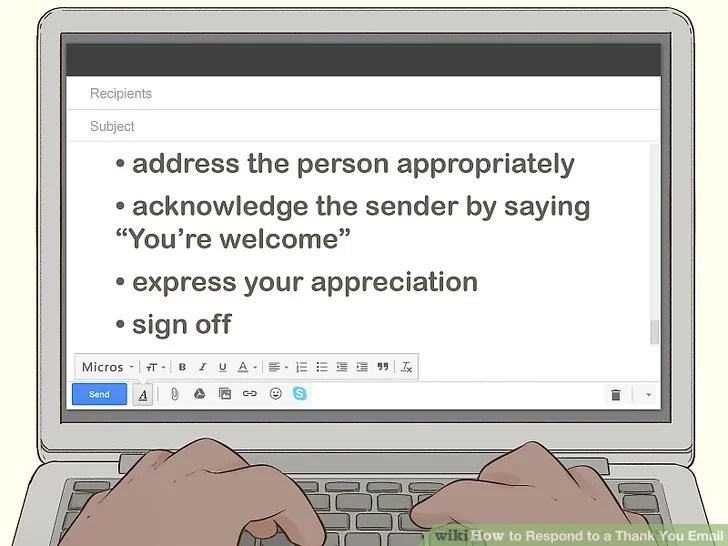Understanding The Perfect Reply For "Thank You"
When someone says "thank you," it can sometimes leave us wondering how to respond appropriately. The phrase "what is the reply for thank you" is an essential part of communication that reflects our social skills and emotional intelligence. A well-thought-out response not only acknowledges the gratitude but also strengthens relationships and fosters goodwill. In various cultures and contexts, the way we reply can vary significantly, making it crucial to understand the nuances behind our responses.
In this article, we will explore the various ways to reply to "thank you," the importance of context in these exchanges, and how to ensure that our responses are both sincere and effective. By the end of this article, you will be equipped with a range of responses suitable for different situations, enhancing your communication skills and social interactions.
Whether in personal conversations, professional settings, or casual encounters, knowing the right reply can make all the difference. So, let's dive deeper into this essential aspect of communication and learn how to master the art of responding to gratitude.
Table of Contents
- What is "Thank You"?
- The Importance of Replying to "Thank You"
- Common Replies to "Thank You"
- Contextual Responses to "Thank You"
- Cultural Differences in Responses
- Building Relationships Through Replies
- When Not to Reply to "Thank You"
- Conclusion
What is "Thank You"?
“Thank you” is a phrase used to express gratitude or appreciation. It is a fundamental aspect of polite conversation and social interaction, signifying acknowledgment of a favor, gift, or service received. The simplicity of the phrase belies its profound impact on relationships, both personal and professional.
The Psychology Behind Gratitude
Gratitude plays a critical role in human interactions, fostering positive emotions and social bonds. Research has shown that expressing gratitude can lead to increased happiness, improved health, and even deeper friendships.
The Importance of Replying to "Thank You"
Responding to expressions of gratitude is crucial for several reasons:
- Acknowledgment: It shows that you appreciate the recognition and the effort made by the other person.
- Encouragement: A thoughtful reply can encourage others to continue expressing gratitude and kindness.
- Relationship Building: Engaging in this exchange helps to strengthen connections between individuals.
Common Replies to "Thank You"
Here are some standard responses one can use when someone says "thank you":
- “You’re welcome!”
- “No problem!”
- “My pleasure!”
- “Anytime!”
- “Glad to help!”
Each of these responses conveys a sense of warmth and willingness to assist, making them appropriate in various situations.
Contextual Responses to "Thank You"
The context in which gratitude is expressed often dictates the most suitable response. Here are some scenarios to consider:
In Professional Settings
In a workplace environment, your response may need to be more formal. Consider these replies:
- “I appreciate your kind words.”
- “Thank you for acknowledging my efforts.”
In Personal Relationships
When responding to friends or family, a more casual approach works well:
- “No worries, I’m happy to help!”
- “It was nothing; I enjoy doing it!”
Cultural Differences in Responses
It's important to recognize that responses to "thank you" can vary significantly across different cultures. For instance:
- In some cultures, a simple nod may suffice as a response.
- In others, a more elaborate reply expressing humility may be expected.
Understanding these differences can help avoid misunderstandings and improve communication in multicultural settings.
Building Relationships Through Replies
Responding thoughtfully to “thank you” is a powerful tool for building and nurturing relationships. By acknowledging gratitude, you not only validate the other person’s feelings but also open the door for more meaningful interactions in the future.
When Not to Reply to "Thank You"
While it is generally polite to respond to gratitude, there are instances where it may not be necessary:
- When the gratitude is insincere.
- In situations where a response may disrupt the flow of conversation.
In these cases, using your judgment is key to maintaining the conversation's natural rhythm.
Conclusion
In conclusion, knowing how to reply to “thank you” is an important skill that enhances communication and fosters positive relationships. By understanding the context, cultural nuances, and appropriate responses, you can navigate these interactions with confidence. Remember, a simple acknowledgment can go a long way in making others feel valued and appreciated.
We encourage you to practice these responses in your daily interactions and observe how they positively impact your relationships. Feel free to leave your comments below, share this article with others, or explore more insightful content on our site!
Thank you for reading, and we look forward to seeing you again!
Exploring The Life And Career Of Olly Rix
Blonde Passion Twists Hairstyle: A Trendy And Versatile Look For Every Occasion
Most Dangerous Cities In Mexico: A Comprehensive Overview


